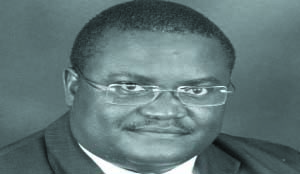By NDINAWE SIMPELWE –
Banned from football for the sixth time in his life, Simataa Simataa said yesterday he would be taking his case to the office of the Office of Public Protector.
Simataa said his ban from all football-related activities by the Football Association of Zambia (FAZ) for
alleged unethical conduct against the association amounted to intimidation and harassment.
It is the sixth ban the outspoken Simataa has coped in his nearly 30 years of involvement in football administration, becoming Zambia’s most banned sports personality.
Nkana football club chairman Evaristo Kabila, charged on similar grounds, escaped with a K7,500 fine.
Joking he was probably the most banned sports person in the world, Simataa said he would be taking the matter to the Office of the Public Protector. “I think this is something I must take to the Public Protector. I am going there on Monday,” he said.
FAZ communications manager Desmond Katongo confirmed in a statement released yesterday that Simataa had been banned with immediate effect under Article 13 (3) of the FIFA Code of Ethics.
The length of the ban was not immediately clear but Simataa, a former FAZ chairman and now General Manager of City of Lusaka, was given up to 10 days to appeal or the ban would be final and binding.
Simataa was summoned by the FAZ Ethics Committee last month and accused of circulating FAZ documents to unauthorised persons, material deemed to have been obtained illegally and with intent to discredit the association’s executive members and officials.
This followed Simataa’s move to report members of the FAZ to the Anti-Corruption Commission after leaked documents from the association revealed that executive members received huge allowances for their roles in FAZ hosting two junior tournaments; the Under 20 Africa Cup and the COSAFA Under 20 tournaments.
“Mr Simataa was found guilty of circulating illegally obtained FAZ documents on social media and to various institutions with intent to discredit the FAZ Executive members and officials of the Association and thus bring the name of the Association into disrepute,” read Katongo’s statement in part.
But Simataa questioned if members of the FAZ Ethics Committee understood the law for them to ban him before he could defend himself.
Simataa said in an interview when he attended the meeting that he did not go there to submit his defence but to present preliminary grounds for his argument.
“How can they make a ruling on preliminary grounds? I was clear that I was presenting six preliminary grounds not my defence and so how can they make a ruling before I defend myself. Have they ever heard of a trial within a trial? These are lawyers, don’t they know the law?” Simataa said.
Asked whether he would appeal the ban, Simataa questioned asked to whom he could appeal, explaining he had not yet received the letter and only saw it on social media where he posted a picture of himself at Football House where he found that the letter was not ready.
“I have been banned before in the past. This will be my sixth ban. What did I do in the past? Who should I appeal to?” he said.
Among the submission Simataa presented to the committee was the argument that FAZ had no code of ethics in keeping with Article 60 (3) of the FIFA Code of Ethics and therefore invoking the article needed a resolution of the executive committee.
Simataa also submitted that the commissioners were conflicted because one of them was a his relative while the chairman, Cephas Katongo, was a close friend FAZ president Andrew Kamanga’s.
But the committee responded that the submissions lacked merit and were misconceived because the FAZ Constitution, under Article 7, mandated bodies and officials of FAZ to observe statutes, regulations, directives, decisions and the Code of Ethics of FIFA.
Meanwhile, Kabila was guilty of issuing statements against the association in the press contrary to Article 13(3) of the FIFA Code of Ethics.
Kabila exculpated himself during the meeting but it was not enough to avoid a fine which he is supposed to pay within 14 days or risk being banned for three months.







